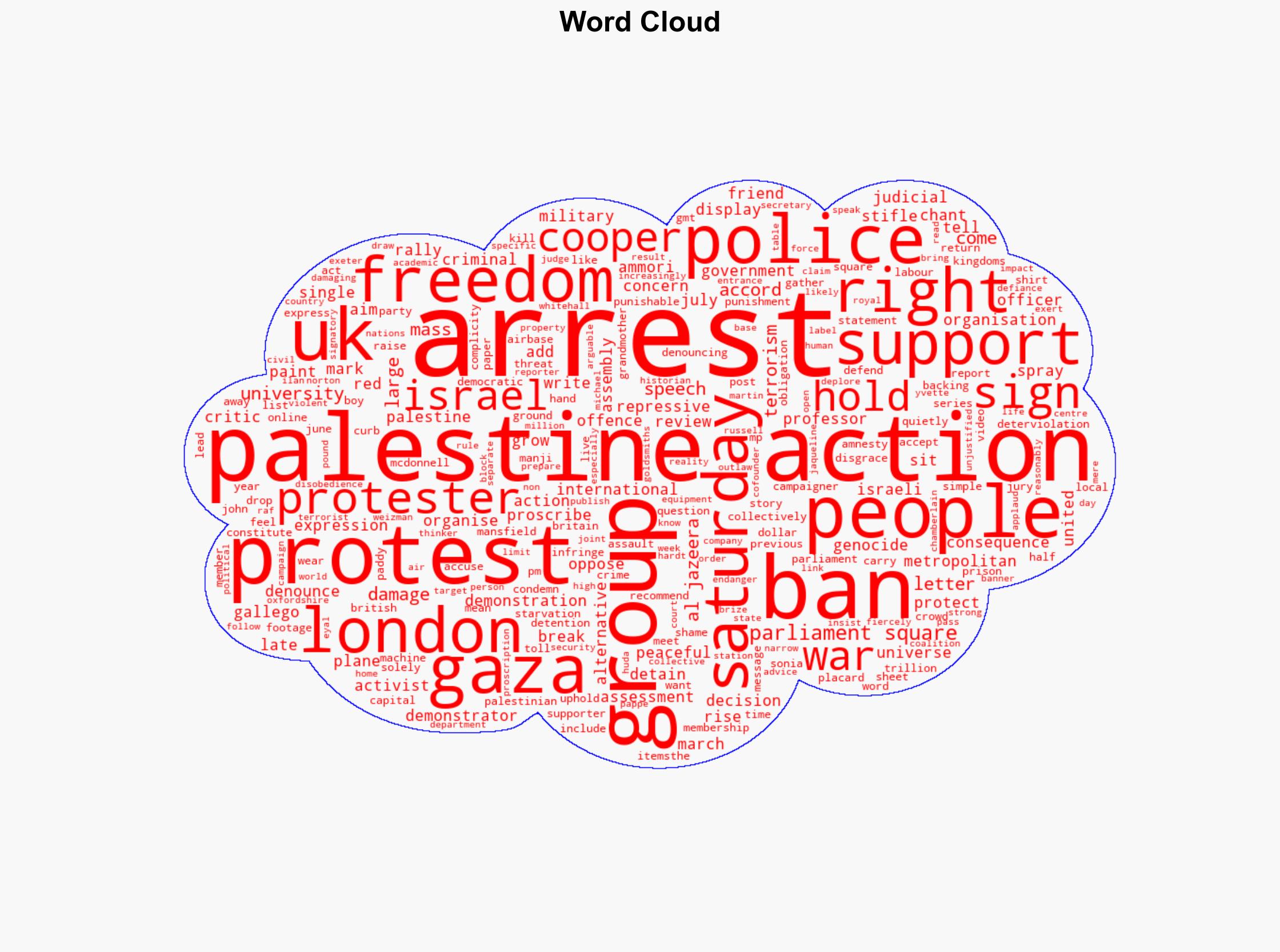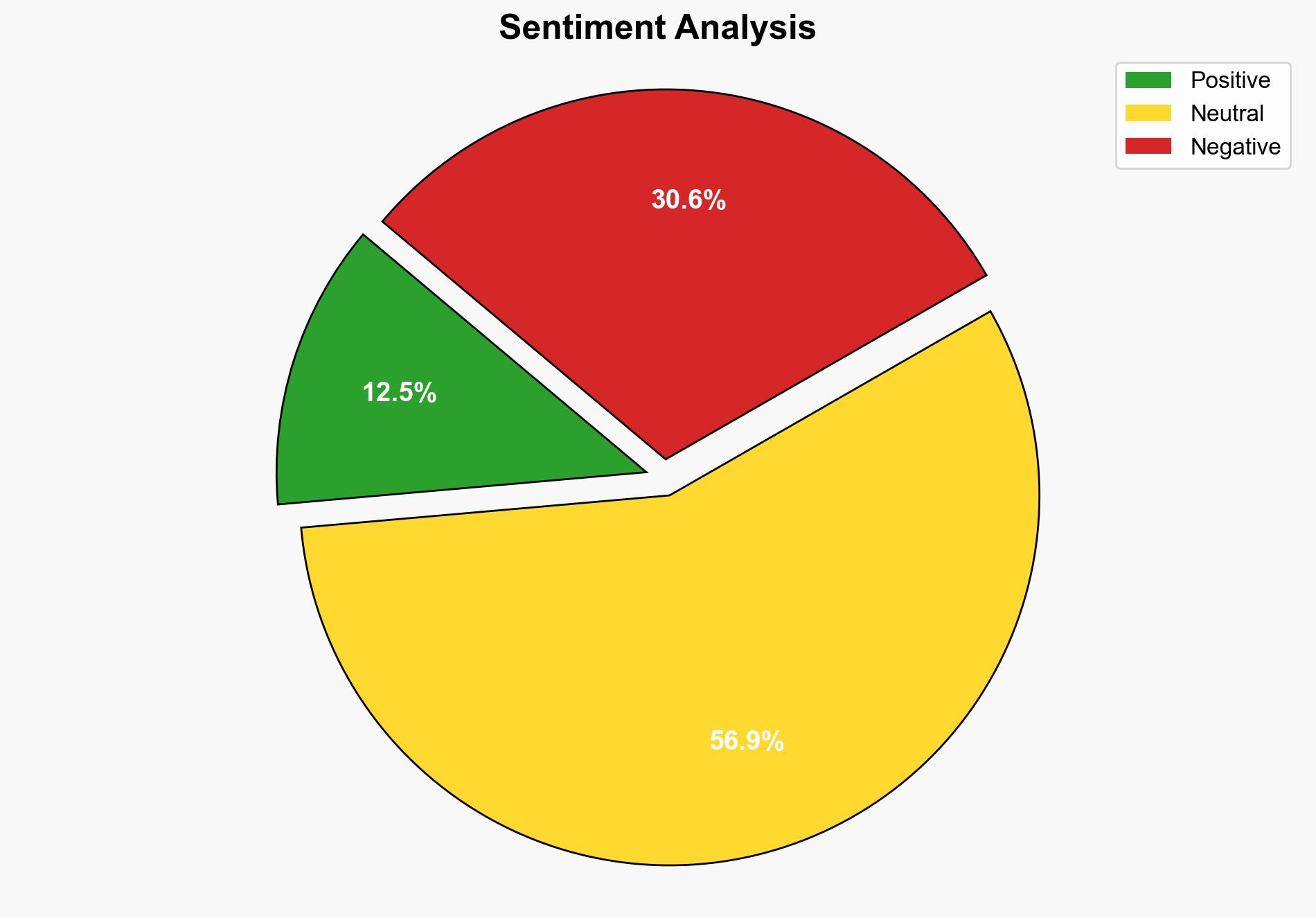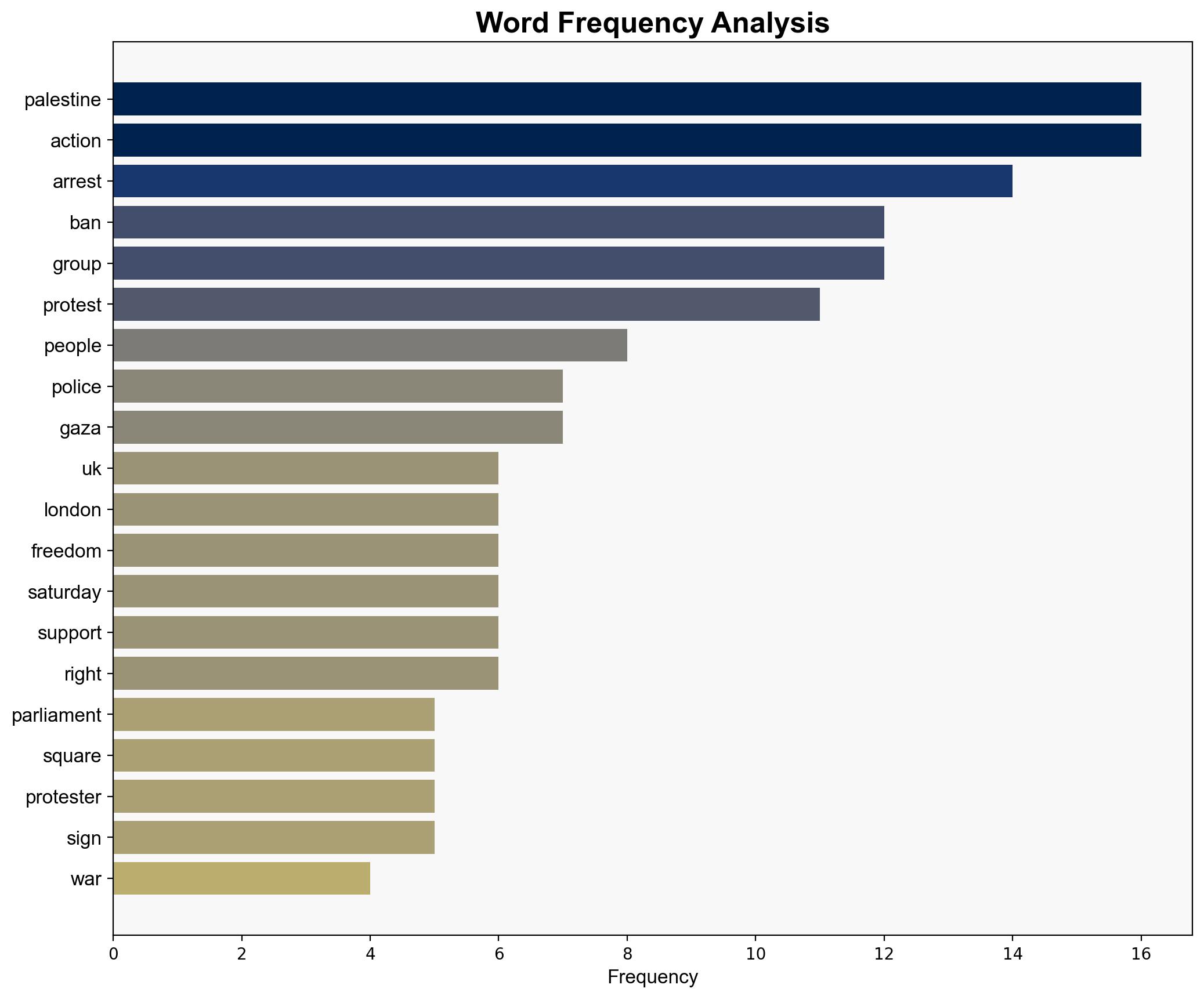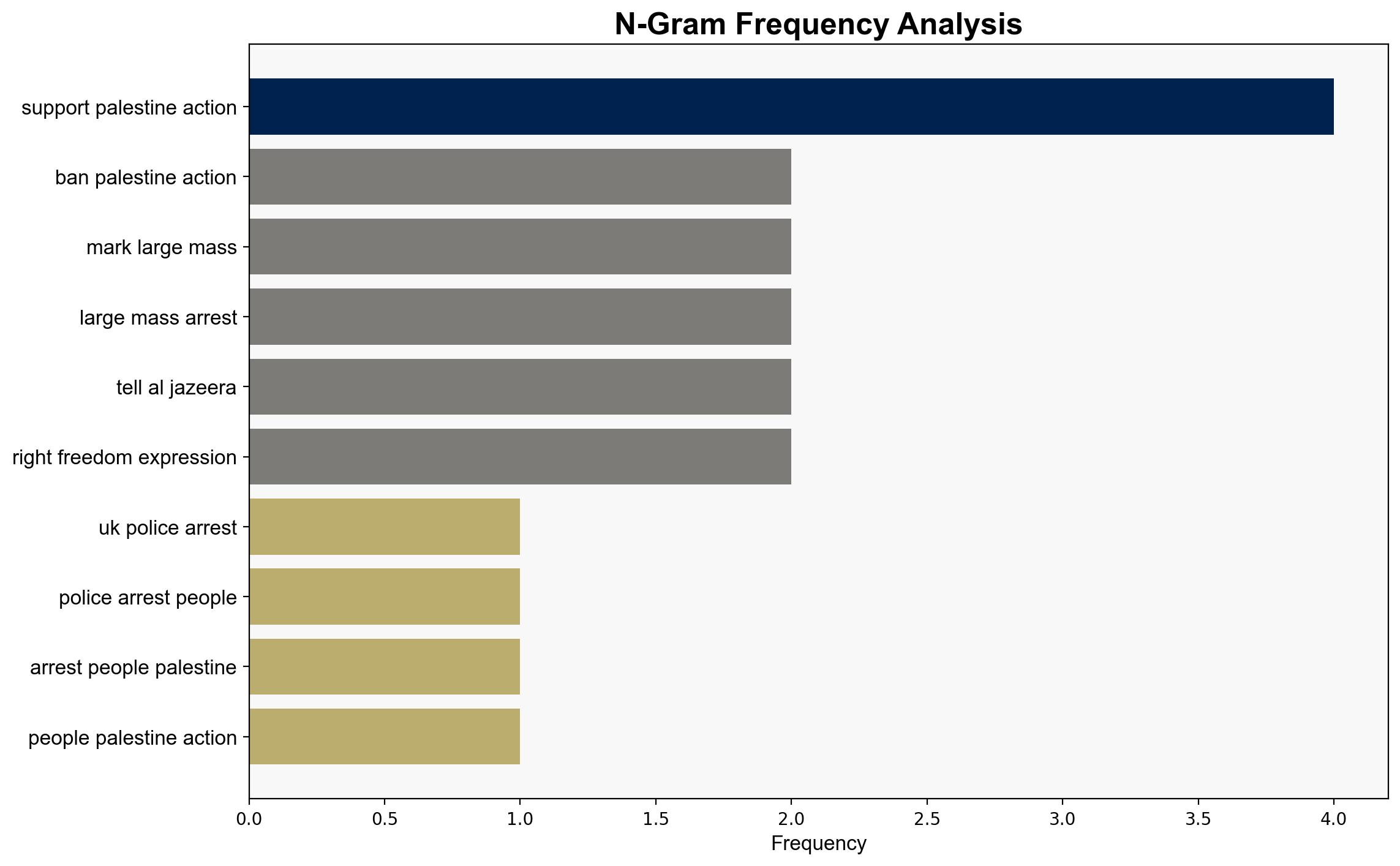UK police arrest at least 200 people at Palestine Action protest in London – Al Jazeera English
Published on: 2025-08-09
Intelligence Report: UK police arrest at least 200 people at Palestine Action protest in London – Al Jazeera English
1. BLUF (Bottom Line Up Front)
The most supported hypothesis is that the UK government’s actions are primarily aimed at maintaining public order and security, rather than suppressing freedom of speech. This conclusion is drawn with moderate confidence, given the complexity of the situation and potential biases in the reporting. It is recommended that the UK government engage in dialogue with civil society groups to address concerns about freedom of expression while ensuring public safety.
2. Competing Hypotheses
1. **Hypothesis A**: The UK government is primarily focused on maintaining public order and security, and the arrests are a response to perceived threats of violence or disruption.
2. **Hypothesis B**: The UK government is using the arrests and the ban on Palestine Action as a means to suppress dissent and limit freedom of speech and assembly.
Using Analysis of Competing Hypotheses (ACH), Hypothesis A is better supported by the structured context of national security concerns and legal frameworks cited in the source. The arrests and ban are framed as responses to specific actions perceived as threats to public safety, such as damage to military property.
3. Key Assumptions and Red Flags
– **Assumptions**: It is assumed that the UK government’s primary motive is security rather than political suppression. It is also assumed that the protests could potentially escalate into violence.
– **Red Flags**: The lack of detailed evidence on the nature of the threats posed by the protests. Potential bias in the source, as it may emphasize the suppression angle.
– **Blind Spots**: Limited information on the internal deliberations within the UK government regarding the decision to ban Palestine Action.
4. Implications and Strategic Risks
– **Geopolitical Risks**: The arrests could strain UK relations with Middle Eastern countries and impact its international standing on human rights.
– **Domestic Risks**: Potential for increased civil unrest and polarization within the UK, leading to further protests and public dissent.
– **Psychological Risks**: Erosion of public trust in government institutions if perceived as infringing on civil liberties.
5. Recommendations and Outlook
- **Mitigation**: Initiate transparent communication channels between the government and civil society to address grievances and clarify the rationale behind security measures.
- **Exploitation**: Leverage diplomatic channels to reaffirm the UK’s commitment to human rights while addressing security concerns.
- **Scenario Projections**:
– **Best Case**: Constructive dialogue leads to de-escalation of tensions and a balanced approach to security and civil liberties.
– **Worst Case**: Escalation of protests and international condemnation, leading to domestic instability and reputational damage.
– **Most Likely**: Continued protests with sporadic incidents of unrest, requiring ongoing management by law enforcement.
6. Key Individuals and Entities
– **Yvette Cooper**: Mentioned in context of the ban on Palestine Action.
– **John McDonnell**: Criticized the arrests as a violation of democratic rights.
– **Amnesty International UK**: Denounced the arrests as a violation of international obligations.
7. Thematic Tags
national security threats, civil liberties, public order, geopolitical relations





